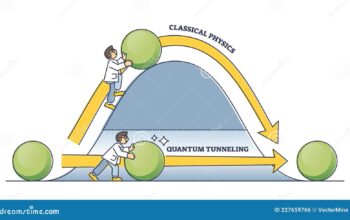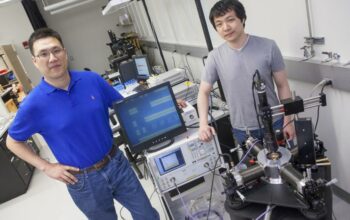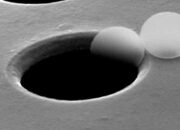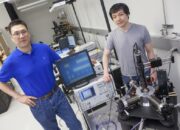The realm of nuclear physics captivates the imagination through its intricate interplay between subatomic particles and the forces that govern them. For those who embark on an academic journey culminating in a Master of Science (M.Sc.) in Nuclear Physics, the possibilities for an illustrious career are both diverse and intellectually stimulating. From academic research to industrial applications, the fissile potential of this discipline promises exciting opportunities. This article delves into various career trajectories that individuals with an M.Sc. in Nuclear Physics may pursue, highlighting the significance of this field in contemporary society.
One of the most immediate avenues for M.Sc. graduates is academia. Pursuing a Ph.D. allows individuals to engage in groundbreaking research while contributing to the academic community through teaching. Universities and research institutions consistently seek scholars to unravel the complexities of nuclear interactions and develop innovative methodologies. In this context, educators play an instrumental role in fostering the next generation of physicists, nurturing curiosity, and instilling a profound understanding of nuclear phenomena.
In addition to traditional academia, nuclear physicists are indispensable in governmental and non-governmental research organizations. Agencies such as the Department of Energy (DOE) or the European Organization for Nuclear Research (CERN) actively recruit professionals to conduct experiments that delve into the properties of atomic nuclei. In such positions, physicists may work on high-energy particle collisions or investigate the fundamental forces that govern matter. These endeavors not only push the boundaries of human knowledge but also contribute to ongoing discussions about energy sustainability and the fundamental principles of the universe.
An equally rewarding career trajectory involves the application of nuclear physics principles in the medical field. Medical physics has seen exponential growth, particularly with advancements in cancer treatment methodologies such as radiation therapy. Professionals in this domain leverage their understanding of nuclear reactions to devise targeted therapies that minimize damage to surrounding tissues while maximizing the efficacy of treatment. This niche indeed marries scientific ingenuity with the altruistic goal of enhancing patient outcomes, thereby affirming the societal relevance of nuclear physics in healthcare.
The intersection of nuclear physics and engineering offers another promising career path. Industries engaging in the production of nuclear power or pursuing advancements in nuclear fusion technologies require a workforce that can navigate the complexities of reactor design and nuclear safety protocols. Engineers adept in nuclear physics principles contribute significantly to the realization of clean energy futures, emphasizing the importance of nuclear technology in the battle against climate change. These roles often encompass research and development, as well as operational oversight, ensuring that energy production meets both efficiency and safety standards.
Furthermore, the nuclear physics expertise proves vital in the field of nuclear forensics and security. Specialists are often employed by governmental agencies tasked with safeguarding nuclear materials and preventing illicit activities surrounding them. The knowledge of isotopes and their decay processes enables physicists to ascertain the origin of nuclear materials and evaluate security risks. This career not only invites substantial responsibility but also ensures the safe stewardship of nuclear technology, further emphasizing the role of nuclear physicists in contemporary geopolitics.
The burgeoning sector of technology and data analysis presents additional opportunities for M.Sc. nuclear physics graduates. With their proficiency in complex mathematical models and computational simulations, these individuals find applications in finance, risk assessment, and algorithm development. The analytical mindset honed during rigorous academic training translates seamlessly into the data-driven world, where the ability to interpret complex datasets is paramount. Here, nuclear physicists can unlock pathways to financial innovation, cybersecurity measures, and even artificial intelligence developments.
As industries increasingly embrace cross-disciplinary approaches, those holding an M.Sc. in Nuclear Physics may find roles within environmental organizations dealing with radiation protection or environmental remediation. The environmental implications of nuclear technology are profound, necessitating experts who comprehend both the scientific intricacies and regulatory frameworks surrounding radiation management. These roles, embedded within broader contexts, contribute to global efforts to ensure safe interactions with nuclear substances.
Notably, the aforementioned careers are not exhaustive. The versatility of a Master’s degree in Nuclear Physics provides graduates with a robust skill set that transcends traditional boundaries. Soft skills such as effective communication, problem-solving, and critical thinking are immensely valuable across various sectors. This adaptability is essential in a rapidly evolving job market where flexibly transitioning between disciplines is increasingly commonplace.
In conclusion, the prospects following an M.Sc. in Nuclear Physics are both distinctly promising and extensively varied. Each avenue, whether in academia, medical physics, engineering, nuclear security, or environmental management, embodies a commitment to scientific advancement and societal stewardship. As the global landscape continues to evolve, the demand for skilled professionals in the realm of nuclear physics remains steadfast. Those who dare to explore these intricacies are surely rewarded with the opportunity to impact the world profoundly, all while uncovering the mysteries that lie at the heart of the nucleus.












